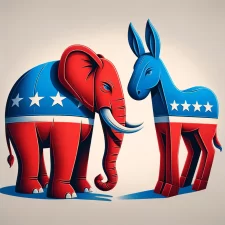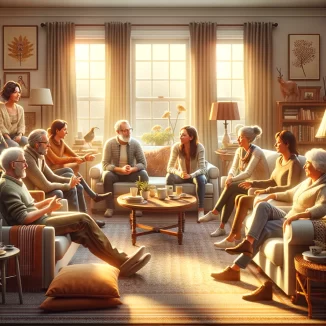
In the ever-evolving landscape of social etiquette rules, what was once considered polite behavior can become outdated or even frowned upon. For the Baby Boomer generation, many of the rules they grew up with are no longer relevant in today’s society. Here’s a look at 10 social etiquette norms that have shifted significantly from the Baby Boomer era to the present day.
1. Formal Dress Codes for Every Occasion

Gone are the days when formal attire was a must for nearly every social gathering. Baby Boomers were accustomed to donning their finest suits and dresses for events that today’s generations might attend in casual wear. The rigid dress codes of the past have given way to a more relaxed approach, where comfort often precedes formality. This shift reflects a broader societal move towards individual expression and away from strict conformity.
2. Writing Handwritten Thank-You Notes

While the sentiment behind a thank-you note remains timeless, the method of delivery has evolved. Baby Boomers were taught the importance of sending handwritten notes to express gratitude. Today, digital communication has largely replaced this practice. Emails, text messages, and social media posts are now common ways to say thanks, reflecting the fast-paced, technology-driven world we live in.
3. Strict Rules Around Table Manners

Table manners are still important, but many of the strict dining etiquette that Baby Boomers learned are no longer emphasized. For instance, the precise placement of utensils and the intricate rules around their use have been simplified. The focus has shifted towards fostering a more relaxed and inclusive dining experience rather than adhering to an extensive list of table manners.
4. Addressing People by Titles

Addressing individuals by their titles, such as Mr., Mrs., or Miss, was once a sign of respect and formality. Today, first-name basis interactions have become the norm, even in many professional settings. Although they may not see it, this highlights a move towards equality and informality, breaking down the hierarchical barriers that titles can impose.
5. Waiting for a Formal Introduction

The expectation to be formally introduced before engaging with someone is a social rule that has faded. In the Baby Boomer generation, it was considered impolite to speak to someone without a proper introduction. Nowadays, social media and networking events encourage more spontaneous interactions, making it perfectly acceptable to introduce oneself without a formal intermediary.
6. Gender-Specific Roles and Expectations

The rigid gender roles and expectations that were prevalent during the Baby Boomer era have been challenged and redefined. Society has moved towards a more inclusive understanding of gender, rejecting the idea that certain behaviors, jobs, or hobbies are exclusively masculine or feminine. This shift reflects a broader commitment to gender equality and the recognition of individual preferences and identities.
7. Avoiding Discussions About Politics or Religion

While it’s still wise to tread carefully in sensitive conversations, the absolute ban on discussing politics or religion in social settings has softened. Increased awareness and activism have made these topics more common in casual conversations. The focus is now on respectful dialogue and understanding diverse viewpoints rather than avoiding these subjects altogether.
8. The Stigma of Living Together Before Marriage

Cohabitation before marriage was once frowned upon, but it’s now a common step in relationships. This change reflects evolving attitudes towards marriage and partnerships, with an emphasis on compatibility and personal choice rather than adhering to traditional milestones.
9. Relying Solely on Traditional Media for News

Baby Boomers often relied on newspapers, television, and radio for news and information. Today, the rise of digital media has diversified how people consume news, with many turning to online platforms, social media, and podcasts. The rise in these types of media has democratized information access but also requires critical thinking to navigate the vast amount of content available.
10. The Expectation to Always Be Reachable

In the past, being out of reach was common and acceptable. However, with the advent of smartphones and constant connectivity, there’s an expectation to be available at all times. There has been a blurred line between personal and professional life, challenging the notion of disconnecting from the digital world.
Why Adapting to New Social Etiquette Rules Is Essential

Ultimately, these shifts in social etiquette rules reflect broader societal changes, including advances in technology, evolving views on gender and relationships, and a move towards a more informal and inclusive culture. While some Baby Boomers may nostalgically recall the days when these rules were the norm, adapting to current trends is essential for navigating today’s social landscape. By doing so, it’s much easier to meet the expectations of today’s population, making it simpler to maintain positive relationships today, tomorrow, and into the future.
Catherine is a tech-savvy writer who has focused on the personal finance space for more than eight years. She has a Bachelor’s in Information Technology and enjoys showcasing how tech can simplify everyday personal finance tasks like budgeting, spending tracking, and planning for the future. Additionally, she’s explored the ins and outs of the world of side hustles and loves to share what she’s learned along the way. When she’s not working, you can find her relaxing at home in the Pacific Northwest with her two cats or enjoying a cup of coffee at her neighborhood cafe.

